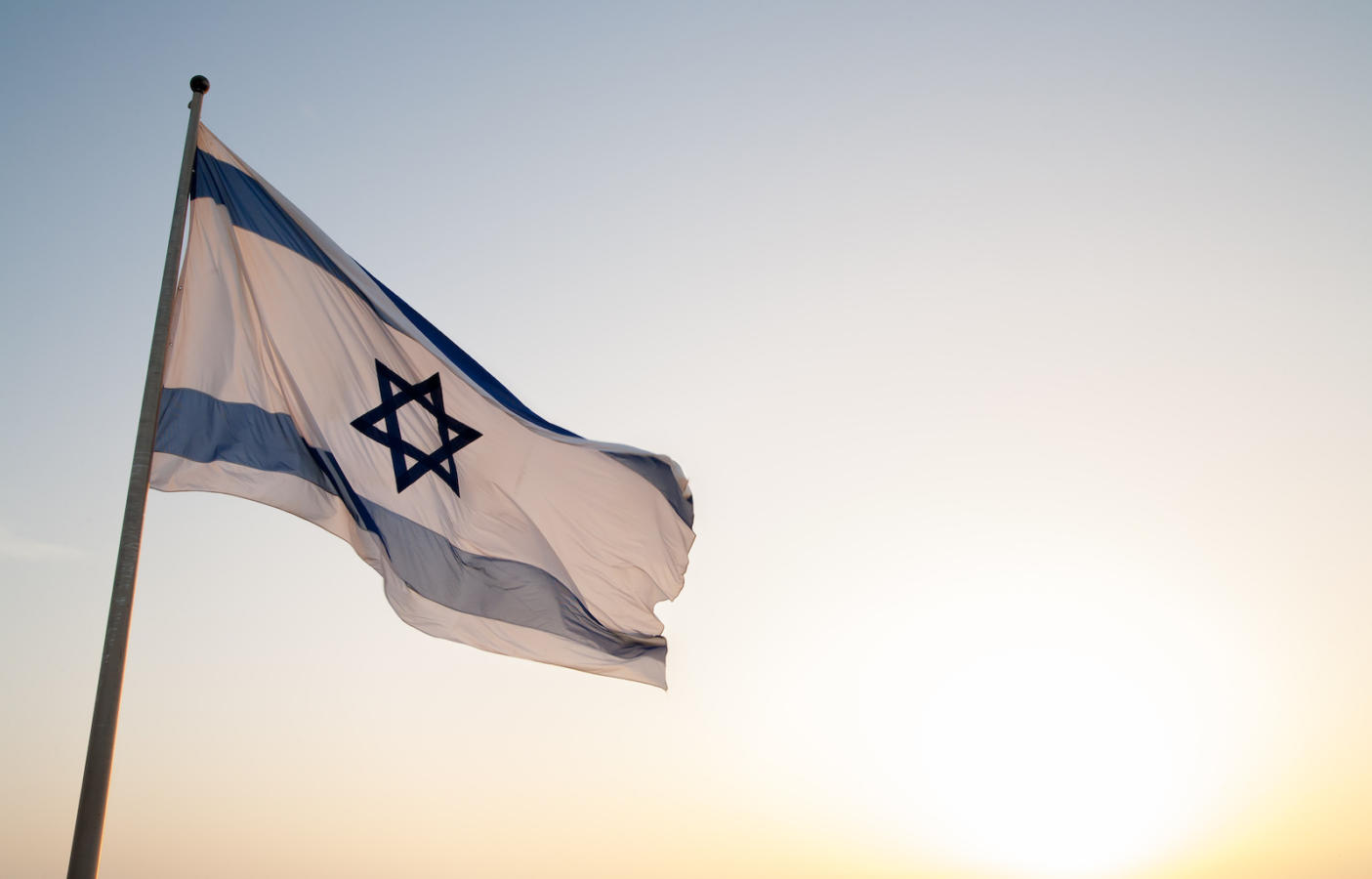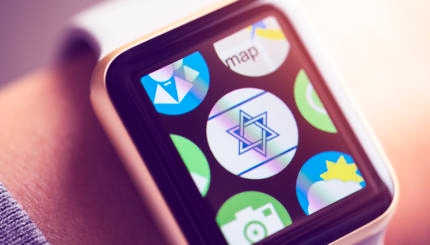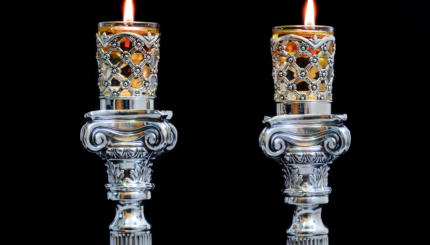Despite the fact that Yom Ha’atzmaut (Israel’s Independence Day) is a national holiday in Israel, the exact character of the day has not yet been determined. Concerts, festivals, religious services, fireworks, picnics, and recreational activities all play a role in the day. In the Diaspora, very few treat it as a full holiday, although most communities offer special Israel focused programs on this day.
For many Jews, Yom Ha’atzmaut is not only a national or political holiday, but a religious one as well. What this means is still evolving and open to debate. It is a special day, but is it a yom tov, a festival like the biblical holidays, in which special prayers are recited and Jewish law prohibits working?
The Chief Rabbinate of Israel has been at the forefront of creating new liturgy that expresses the special meaning of the day from a religious Zionist perspective. Over the years the many chief rabbis have written or sanctioned a number of different Yom Ha’atzmaut services that can be found in various siddurim (prayerbooks), most notably the Siddur Rinat Yisrael, a popular prayerbook that integrates Yom Ha’atzmaut into the liturgy alongside all other holidays, including the recitation of Hallel–the psalms of praise said on most holidays–and special psalms and the blowing of the shofar.
For some, the innovations of the Chief Rabbinate did not go far enough. In the 1950’s, the Religious Kibbutz Movement began a process of creating a special machzor (holiday prayerbook) for Yom Ha’atzmaut. The last version was published in the 1970s with notes by Chief Rabbi Shlomo Goren. While Rabbi Goren blessed the kibbutzim for their efforts to sanctify the day, he wrote that many of the innovations went too far. While his recommendations were published in the machzor (out of respect), most of the kibbutzim did not change their practices.
As the character of the day develops from year to year, it is important to note that not all Jews are in agreement about the nature of Yom Ha’atzmaut. For many there is no question that Yom Ha’atzmaut is to be celebrated as a full holiday. On the other hand, there are those who actively refuse to celebrate this day. Between these two extremes are the Jews who celebrate the existence of Israel but hesitate to institute liturgical or ritual changes in honor of this day. Each point of view represents different attitudes toward the meaning and significance of the State of Israel for the Jewish people.
Celebrating Yom Ha’atzmaut
A visitor entering the synagogue of the religious Kibbutz Lavi on the Eve of Yom Ha’atzmaut would be hard pressed to find an outward difference between this service or that of any other major Jewish festival. Everyone is dressed in their white shirts and holiday best. The synagogue is filled with the sound of voices singing the holiday tunes. Following the service, everyone gathers in the communal dining room for a meal that rivals the best Shabbat or holiday fare.
In the morning, the services are festive, with the addition of the Hallel and a special Torah service.
In addition to the Orthodox Religious Kibbutz Movement, the Masorti (Conservative) movement has made great strides in integrating Yom Ha’atzmaut into the mainstream of Jewish practice. For example, the movement published a Haggadah for Yom Ha’atzmaut that is designed to bring the celebration into the home. Originally published in Hebrew, it has been translated into English and widely distributed.
Among the secular population in Israel, there have also been strides in recent years to bring a deeper sense of meaning to the celebrations of the day, such as organized tiyulim (hiking and connecting to the land), lectures, family education programs, and forums for community dialogue.
The discussion concerning the significance of Yom Ha’atzmaut is not confined to Israel. Recently, the Central Conference of American Rabbis (the Reform rabbinic body) was asked about the singing of Hatikvah, Israel’s national anthem, at the conclusion of a Yom Ha’atzmaut service. The answer included an impassioned Zionist statement: “Israel…is, in the most deeply Jewish sense, our own, in our devotion to its well being and in our identification with the history and experience that its national symbols represent. We may therefore sing Hatikvah at our religious services, whether or not we choose to accompany it with our own national anthems.”
This teshuva (rabbinic response) brings a number of precedents concerning the observance of Yom Ha’atzmaut in Reform congregations:
“Yom Ha’atzmaut, Israel Independence Day, has been established as ‘a permanent annual festival in the religious calendar of Reform Judaism’ (CCAR Yearbook 1970), and our prayerbook contains liturgy for Yom Ha’atzmaut (Gates of Prayer 590-611). We consider it ‘a mitzvah [commandment] for every Jew to mark Yom Ha’atzmaut by participation in public worship services and/or celebrations which affirm the bond between the Jews living in the Land of Israel and those living outside.’ (Gates of the Seasons CCAR 1983 p.102) Those services and celebrations have become the norm, the accepted minhag [custom] in our congregations and communities.” (CCAR Responsa 5758.10)
Not Everyone Celebrates
From a religious and secular Zionist perspective, the creation of Israel is nothing less than the culmination of Jewish history, an event of epic proportions to be celebrated as a holiday by all generations on the level of Passover, Hanukkah, or Rosh Hashanah.
From a non-Zionist Jewish perspective, Israel is, at the very best, a haven and home to a large Jewish community, at worst, a secular state that endangers traditional Judaism. These (usually ultra-Orthodox) Jews do not see the creation of Israel as a central moment in Jewish history and do not celebrate Yom Ha’atzmaut. Some even see the creation of Israel as a sin that expresses to God an attitude that the Jewish people do not trust God to bring them back to Israel on His own. In the words of one of the leaders of the Neturei Karta, an ultra-Orthodox anti-Israel group based in Jerusalem, “The Zionist State represents total heresy uprooting the soul of our faith from its root and violating the covenant which God made with us on Mount Sinai.”
Although most “non-Zionists” are not as radical as this, there is a certain tension between those who believe that we must wait for the Messiah to bring an end to the Diaspora, and those who believe that the Jewish people must take action on their own. This argument has been going on among rabbis since the early 19th century, with the roots of the argument to be found in the Bible and Talmud. This tension is the basis of the hesitancy on the part of most ultra-Orthodox Jews to observe or acknowledge Yom Ha’atzmaut.
A New Perspective in the Land of Miracles
There seems to be a new spirit in Israel that may one day bring Yom Ha’atzmaut even to those who have never celebrated the holiday.
Yom Ha’atzmaut of 5763 (2003) was a turning point. Ultra-Orthodox Rabbi Yehudah Meshi-Zahav, the one-time spokesman of the fiercely anti-Zionist Neturei Karta group noted above, lit a celebratory torch on national television with the words “I light this torch in the name of the people of Israel, to the glory of the State of Israel” (Standing proudly in his Hasidic garb in front of the grave of the founder of the Zionist movement, Theodor Herzl). He was invited to do this because of his leadership of the ZAKA organization whose members clean up after terrorist attacks, making sure that all human remains are properly cared for with love and respect.
When asked why he agreed to light the torch he said, “After spending years picking up body parts at terrorist attack scenes, I have come to the conclusion that the time has come to live together…I state with absolute certainty, that for me, lighting an Independence Day torch is a sanctification of God’s Name…unity is of paramount importance, above the issues that divide us.”
Judaism is an organic tradition, changing and adapting as the Jewish people meet new realities and challenges. The creation of an independent Jewish State is the greatest of all challenges, and recognizing its significance for the future of the Judaism and the Jewish people is an ongoing process. The issues surrounding the observance of Yom Ha’atzmaut are part of this ongoing process.
Haggadah
Pronounced: huh-GAH-duh or hah-gah-DAH, Origin: Hebrew, literally “telling” or “recounting.” A Haggadah is a book that is used to tell the story of the Exodus at the Passover seder. There are many versions available ranging from very traditional to nontraditional, and you can also make your own.
Hasidic
Pronounced: khah-SID-ik, Origin: Hebrew, a stream within ultra-Orthodox Judaism that grew out of an 18th-century mystical revival movement.
Shabbat
Pronounced: shuh-BAHT or shah-BAHT, Origin: Hebrew, the Sabbath, from sundown Friday to sundown Saturday.
Torah
Pronunced: TORE-uh, Origin: Hebrew, the Five Books of Moses.



